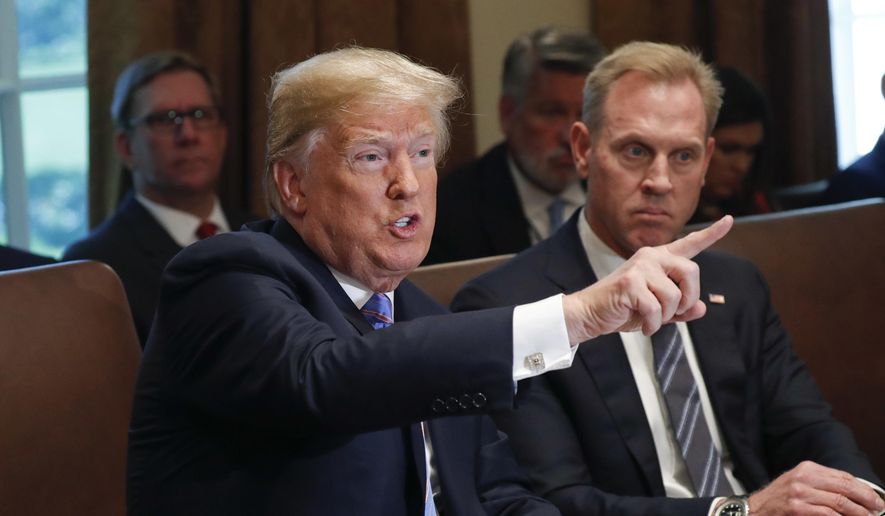President Trump amped up the trade fight Wednesday with the European Union, vowing “tremendous retribution” if they can’t settle the standoff over automobile imports next week when the EU commission president visits the White House.
Mr. Trump said he “made no bones about it” when pressing European leaders for a better deal for America, adding that cars were the “big one.”
The EU currently imposes a 10 percent tariff on auto imports, compared to the U.S. charging a 2.5 percent duty on cars.
Mr. Trump has threatened to raise the U.S. tariff on cars and car parts to 20 percent or 25 percent to force a more balanced trade arrangement.
It would be the biggest tariff yet from the Trump administration, impacting imports valued at $176 billion in cars and $147 billion in car parts in 2017.
The issue will top the agenda when European Commission President Jean-Claude Juncker visits the White House on July 25.
Mr. Junker said Wednesday that he was “upbeat and relaxed” ahead of his trip to Washington and didn’t back down from the trade fight.
“We will continue to react tit-for-tat to the provocations that might be thrown at us,” he told reporters in Brussels.
The EU and Japan singed a major trade deal the week. The deal reduced most taffies to zero between the two country, which described it as an alliance against rising “protectionism” — an apparent reference to Mr. Trump.
Mr. Trump has ratcheted up tension with Europe. Last week he called the EU a “foe” on trade. While at a NATO summit last week in Brussels, he slammed Germany for a gas pipeline deal with Russia.
White House press secretary Sarah Huckabee Sanders wouldn’t rule out the auto tariffs as part of Mr. Trump’s “tremendous retribution.”
“Certainly, that’s an option on the table that the president is considering, but we are in an investigation process right now and we’ll let you know.”
Mr. Trump thinks the U.S. has been hobbled for decades by bad trade deals. As president, he embarked on get-tough negotiations for what he calls “fair and reciprocal” trade deals.
Trade was a cornerstone of the campaign that delivered Mr. Trump to the White House. He has followed through on every promise he made about trade, from forcing a rewrite of the North American Free Trade Agreement (NAFTA) between the U.S., Mexico and China to aggressively confronting China about unfair trade practices.
However, the administration’s get-tough policies resulted in standoffs with trading partners on every front.
The spat with the EU began with the administration slapping tariffs on steel and aluminum, which delivered a blow to Germany, the wealthiest member of the EU
The trade fights, especially between the U.S. and China, have caused wild swings on Wall Street and raised alarms in industries from manufacturing to agriculture.
“This is short term,” said Mrs. Sanders. “The president hopes to open up a number of different markets and to create a more [level] trading field across the globe.”
Recent economic reports showed jitters across several economic sectors about trade policies and new tariffs and threatened tariffs.
Manufactures worry about the impact from tariffs driving up prices.
Steel and aluminum prices have risen due to tariffs of 25 percent and 10 percent, respectively.
Some agriculture prices have dropped amid the trade disputes with China, Mexico and Europe.
Mrs. Sanders said the president was focused on “long-term economic principles.”
“We have one of the strongest economics that we’ve had in decades,” she said. “He continues to look for ways to help protect American workers and he is going to continue to do that on a number of different fronts and in a number of different ways.”
• S.A. Miller can be reached at smiller@washingtontimes.com.




Please read our comment policy before commenting.